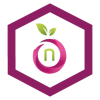If there’s one thing that the economic ups and downs have reminded the world of, it’s that Germany is an industrious, productive nation which supplies companies and consumers across the planet with everything from Mercedes and BMWs to the screws for those little hinges on the door of your mini beer-fridge. And given that Germany is so creative when it comes to making products, it shouldn’t come as any surprise that they’re very good at making product names to match.

English and American companies, producers, and designers often just stick with the names of the people that founded them: think names like Ford, Johnson and Johnson or Paul Smith. That works fine for many companies as the English-speaking market is large enough on its own and English is, of course, a world language, carrying both a high recognition factor and cultural cachet.
German companies working within Germany often stick to surnames: Müller, for example, a Southern German chain of drugstores, or Leibniz, a popular brand of biscuit. Yet while a few traditional German surnames have gone international – Beck (as in Beck’s beer), Schlecker (until insolvency), or Schenker (the logistics company now owned by DB Deutsche Bahn) – the many really successful brands have more creative names.
Neutral and international

While some British and American companies also use this strategy (“Tesco” from T. E. S. Company, in terms of supermarkets), it has a far longer tradition in German: the most popular chocolate from Britain is called Cadbury’s, America loves it’s Hershey’s, but Switzerland and Germany exports tonnes and tonnes of Milka – a portmanteau of Milch and Kakao, milk and cocoa.
There are plenty of other creative ways of making German names international: the founder of Audi was called Horch and translated his surname into Latin! Meanwhile, the Bayerische Motoren-Werke went for BMW: there’s nothing more international than an acronym as, outside of the car industry, AEG and BASF (both German industrial giants) have found out.
Consciously German

Even in some unexpected sectors, a German name is an advantage. Just look at fashion: although many people abroad might associate German fashion more with socks and sandals than anything else, especially high-end products also benefit from the country’s reputation for flawless industrial design and reliable quality: just ask Wolfang Joop and Jill Sander – but not Calvin Klein, who is of course American.
Then again, as German companies have long understood, the name is only half the story – filling it with positive associations is the other half. Sometimes, even very unlikely names become global brands: who doesn’t like a piece of Bauknecht machinery? Even if you can’t pronounce it…
About the author

Find more information about Brian on his website.
















